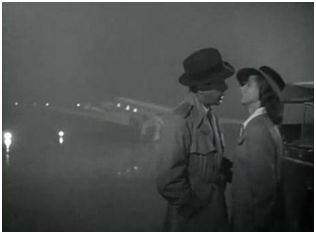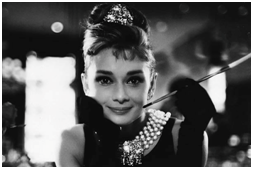
Lesson 7: Monologue
In this lesson, we’ll be offering you different tips on how to write a good monologue.
Objectives:
- To define and discuss a monologue and how it differs from dialogue
- To enumerate concrete techniques on how write an effective monologue
- To show examples of good monologues
- To list down the dos and don’ts of monologue-writing
Quick Navigation through the Lesson 7:
In this lesson, we’re going to be discussing the monologue, its definition and different steps to take to be able to write an effective monologue. We’ll also be looking at different examples of monologues in famous pieces of work that are effective, along with what makes them good and how you can achieve the same effect.
Know your definitions
The first thing you need to know when writing a monologue is to know its definition and purpose. A monologue is a part in a screenplay or novel where one character talks to him or herself as another character listens. If a character talks to himself and there is no one there to hear it, this is called a soliloquy.
Also, monologues always happen for a reason when inserted into a body of work. When writing your monologue, you need to keep the big picture in mind: what does this monologue contribute to your entire body of work?
Below are a couple of examples of monologues in famous films and plays along with the ways in which they enriched the entire body of work:
Rick’s monologue in Casablanca
 The movie Casablanca is set during the second world war. It focuses on Rick Blaine, a man who owns a café in Casablanca, one of the places which were safe or neutral during the war. Rick’s peaceful life is interrupted when his old life flies into town with her new love, Victor Laszlo in tow: Laszlo is the leader of the resistance in Paris and lots of people are after him. Through a series of flashbacks, we find out that Rick was the one who broke off the affair by running away when the Nazis invaded Paris. Throughout the film, Rick and Ilsa rekindle their romance—however, in a final turn of events Rick realizes that for once, it’s time for him to do the right thing. In his final monologue, he reveals to Ilsa that he’s found a way for her and Victor to escape and fly to safety, for her own good and for the good of the resistance.
The movie Casablanca is set during the second world war. It focuses on Rick Blaine, a man who owns a café in Casablanca, one of the places which were safe or neutral during the war. Rick’s peaceful life is interrupted when his old life flies into town with her new love, Victor Laszlo in tow: Laszlo is the leader of the resistance in Paris and lots of people are after him. Through a series of flashbacks, we find out that Rick was the one who broke off the affair by running away when the Nazis invaded Paris. Throughout the film, Rick and Ilsa rekindle their romance—however, in a final turn of events Rick realizes that for once, it’s time for him to do the right thing. In his final monologue, he reveals to Ilsa that he’s found a way for her and Victor to escape and fly to safety, for her own good and for the good of the resistance.
This final monologue is one of the many things that made the movie Casablanca a cult classic. It finally reveals that under his tough exterior, Rick is a good guy who has decided to sacrifice his own happiness for the happiness of the woman he loves. Also, the last line, which was what he would tell Ilsa when they would drink together in Paris, delivers just how painful this goodbye is for him.
Below is an excerpt:
I’m saying it because it’s true. Inside of us, we both know you belong with Victor. You’re part of his work, the thing that keeps him going. If that plane leaves the ground and you’re not with him, you’ll regret it—maybe not today and maybe not tomorrow, but soon and for the rest of your life.
We’ll always have Paris. We’d lost it until you came to Casablanca. We got it back last night.
Ilsa, I’m no good at being noble but it doesn’t take much to see that the problems of three little people don’t amount to a hill ‘o beans in this crazy world. Someday you’ll understand that. Now, now. Here’s looking at you, kid.
Holly’s monologue in Breakfast At Tiffany’s
 The movie Breakfast At Tiffany’s was based off of Truman Capote’s novel of the same title. It features Holly Golightly, portrayed by Audrey Hepburn in the 1961 movie, who is a beautiful but quite lonely woman who works as a professional escort. She becomes fast friends with her neighbor, Paul Varjak, played by George Peppard. In this monologue, she is telling Paul why she goes to Tiffany’s whenever she feels afraid—this does more than just reveal her eccentricity, it gives us a peek into who the character is. It also foreshadows what eventually happens between her and Paul.
The movie Breakfast At Tiffany’s was based off of Truman Capote’s novel of the same title. It features Holly Golightly, portrayed by Audrey Hepburn in the 1961 movie, who is a beautiful but quite lonely woman who works as a professional escort. She becomes fast friends with her neighbor, Paul Varjak, played by George Peppard. In this monologue, she is telling Paul why she goes to Tiffany’s whenever she feels afraid—this does more than just reveal her eccentricity, it gives us a peek into who the character is. It also foreshadows what eventually happens between her and Paul.
Below is an excerpt:
You know those days when you get the mean reds? The blues are because you’re getting fat and maybe it’s been raining too long. You’re sad, that’s all. The mean reds are horrible. Suddenly you’re afraid and you don’t know what you’re afraid of. Don’t you ever get that feeling?
When I get it, the only thing that does any good is to jump into a cab and go to Tiffany’s. Calms me down right away. The quietness and the proud look. Nothing very bad could happen to you there. If I could find a real-life place that made me feel like Tiffany’s , then—then I’d buy some furniture and give the cat a name.
Juliet’s monologue in Romeo & Juliet
One of the most famous examples of an effective monologue is Shakespeare’s Romeo & Juliet—the classic story of star-crossed lovers. In the play, Romeo and Juliet meet in secret, with Juliet standing out on her balcony and Romeo secretly climbing up to meet her. This monologue heightens the tension and also reveals Juliet’s affections for Romeo—that she is willing to give up her family and her name to be with him.
Below is an excerpt:
O Romeo, Romeo! wherefore art thou Romeo?
Deny thy father and refuse thy name;
Or, if thou wilt not, be but sworn my love,
And I’ll no longer be a Capulet.
‘Tis but thy name that is my enemy;
Thou art thyself, though not a Montague.
What’s Montague? It is nor hand, nor foot,
Nor arm, nor face, nor any other part
Belonging to a man. O, be some other name!
What’s in a name? That which we call a rose
By any other name would smell as sweet;
So Romeo would, were he not Romeo call’d,
Retain that dear perfection which he owes
Without that title. Romeo, doff thy name,
And for that name which is no part of thee
Take all myself.
Study, study, study!
As with anything we do when writing, it’s very important when writing a monologue that you do adequate research. Reading different monologues in acclaimed pieces of work can help you determine the best way to go about writing your monologue.
Nix the melodrama
Melodrama is defined as the unnecessary immersion of the reader in a particular emotion or situation. Contrary to the apparent goal of this immersion, which is to make the reader engage with the work, this does the opposite—the show of emotion comes of over-exaggerated and keeps the reader from connecting with the characters because the display of emotion becomes cliché or unbelievable.
It’s important to always employ restraint. Take the monologue from Casablanca we discussed above—if you’ll notice, even if Rick means to say that he loves Ilsa, the word love itself is never mentioned. Instead, he talks about what has to be done—our previously discussed technique of show, not tell is employed by using “here’s looking at you, kid” to express that he cares for her, despite refusing to run away with her.
Be specific
Your monologue should fit into your work seamlessly: you should know what kind of work you’re writing—is it a tragedy? Is it a comedy? Is the tone light? Is it serious? Once you identify these things, you’ll be able to better achieve your goal of writing a monologue that will help your readers enjoy reading your work.
[WpProQuiz 205]
In this lesson, we were able to tackle different tactics to be able to write good monologues. We were able to discuss how monologues are defined—to better understand this, we were also able to look at different examples that have been acclaimed throughout the years in film and drama.
Try Our Exercise And and Prep Yourself for the Real Thing
Next we’re going to be discussing how to curate or select the information that you put into your writing. Keep reading and we’ll be moving closer and closer toward our goal of polishing our writing skills so that we produce work that’s concise, sophisticated and well-written.
 + 1-888-827-0150
+ 1-888-827-0150 + 44-20-3006-2750
+ 44-20-3006-2750










